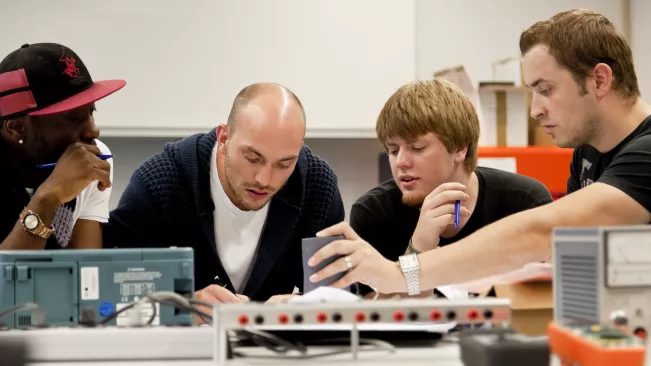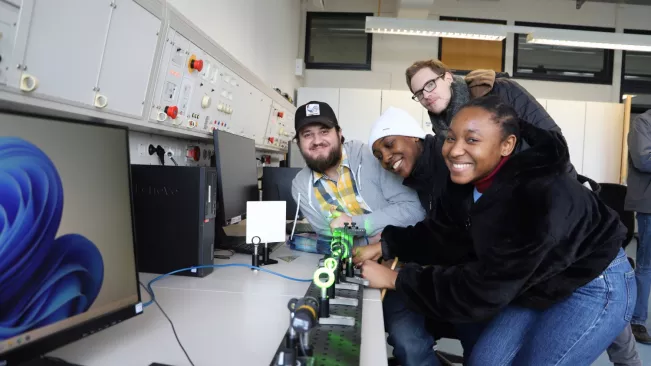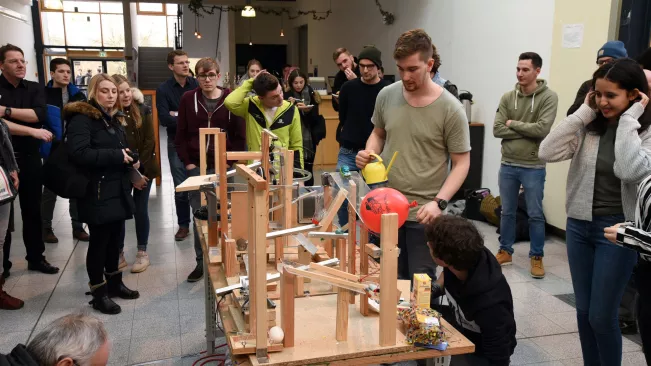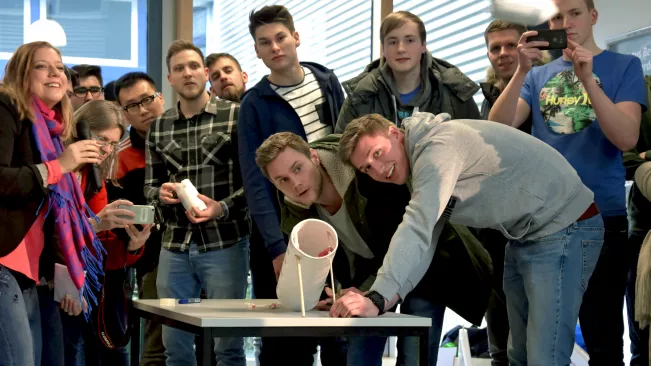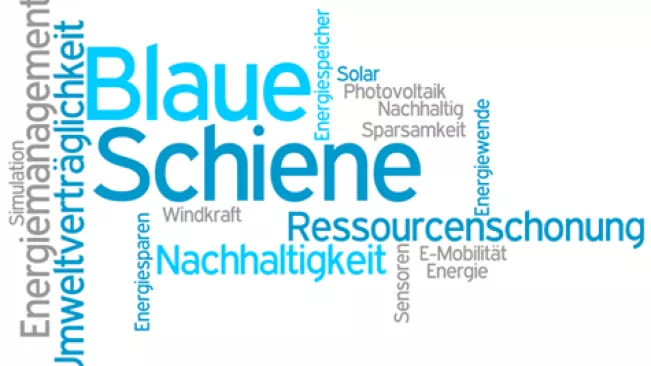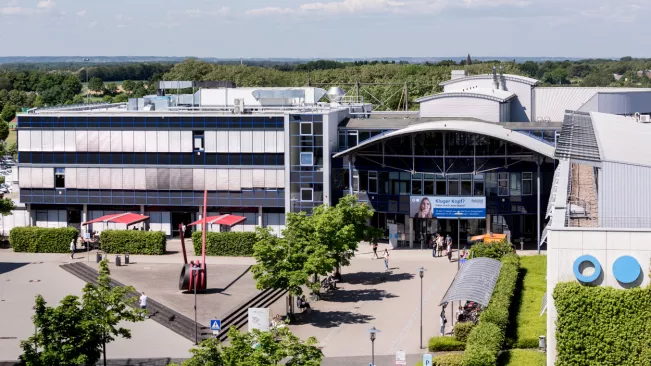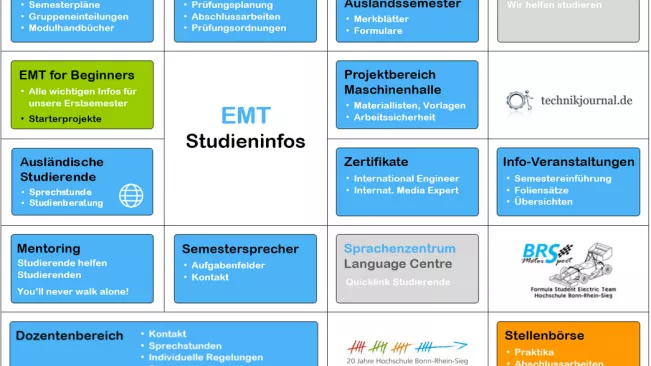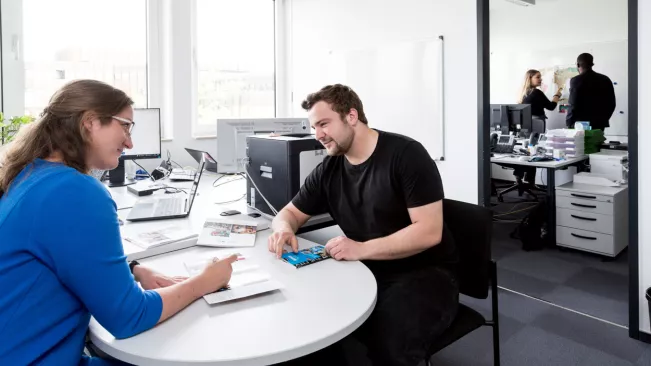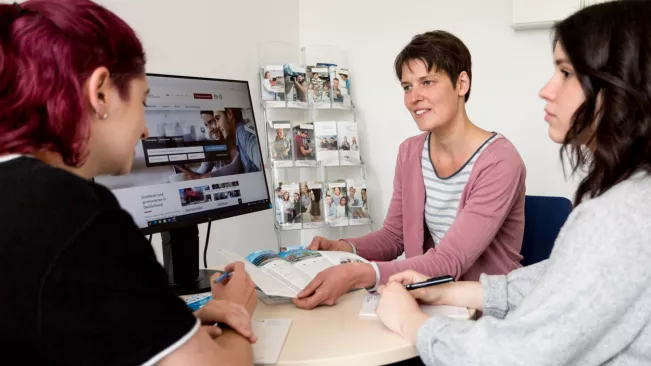Department of Engineering and Communication
Electrical Engineering (BEng)

Programme content
The field of electrical engineering ranges from the development of electronic components for process variable detection and actuator technology to microprocessors and PLC controls through to the implementation of networked process control systems. This requires engineers from a wide range of specialised fields such as electronics, circuit, control, regulation and digital technology or information technology.
In the first two semesters, students acquire the mathematical and physical basics: they learn how electrical components work and are used in circuits. Knowledge of computer science and important basic knowledge for engineers complement the foundation programme.
At the beginning of the third semester, students choose a specialisation. They can choose between automation technology or electronic systems. In the third and fourth semesters, students also acquire specialised knowledge in microprocessors and circuit development. In the fifth semester, students spend at least 20 weeks in an internship semester to familiarise themselves with everyday working life in a company. Alternatively, students can also spend a semester abroad.
In the subsequent focus year (sixth and seventh semesters), students intensify their application-related project work and acquire further key qualifications. The programme concludes with a practice-oriented Bachelor's thesis and a colloquium, after which graduates are awarded the title ‘Bachelor of Engineering’ (BEng).
Sustainability in the degree programme: ‘Blue Rail’
The challenge for engineers is to find innovative solutions for future issues. The Blue Rail consists of modules in which aspects of sustainability are taught. From the second semester onwards, cross-semester courses are offered on topics ranging from renewable energies, e-mobility and energy harvesting to energy management in IT systems and sustainable product development.
Practical relevance
An essential part of an engineering degree programme at Hochschule Bonn-Rhein-Sieg is to apply the knowledge acquired in a practical and solution-oriented manner:
- in laboratory practicals in which, for example, physical principles are tested and materials are analysed.
- during the three project weeks per semester, which alternate with four weeks of lectures and offer the opportunity to work on projects in small teams (four-one model).
- during an internship semester in Germany or abroad, during which students gain their first work experience as prospective engineers.
- in the final thesis, which can be written in co-operation with companies or research institutes.
Required language skills
All courses are held in German.
Prospects and job prospects
Automation technology is used in the comprehensive control of rail and road networks and in the handling of logistics at airports. Digital and electronic systems ensure safe and efficient driving in vehicles and enable the use of highly efficient electric drives. Today, every manufacturing company, whether in plant or automotive engineering or in the chemical industry, is largely automated. This also applies to systems for generating or distributing energy, such as wind turbines or transformer stations, as well as systems for water supply and wastewater disposal. As a graduate of our Bachelor's degree programme in Electrical Engineering (BEng), you will be in demand in all these and many other areas.
Hochschule Bonn-Rhein-Sieg offers two suitable Master's degree programmes based on the Bachelor's degree programme: Electrical Engineering (MEng) with a specialisation in Electrotechnical System Development and Mechanical Engineering (MEng) with a specialisation in Mechatronics or Virtual Product Development.
Location
The Sankt Augustin campus is located in NRW and is easy to reach by public transport from Cologne, Bonn, Düsseldorf or Koblenz.
Exciting insights into the degree programme

Study Facts
Degree
Bachelor's degree
Standard period of study
Seven semesters / 210 ECTS
Language skills
German
Campus
Sankt Augustin
Start of course
Winter term
Semester contribution
Prerequisites
Enrolment
Accreditation
Download flyer
Head of degree programme

Ingo Groß
Professor for Automation Technology, Subject Advisor Electrical Engineering and Cooperative Studies Electrical Engineering, Presidential Representative for School Contacts
Location
Sankt Augustin
Room
B 207
Address
Grantham-Allee 20
53757 Sankt Augustin
Telephone
+49 2241 865 376Contact
Departmental Office Engineering and Communication
Campus
Sankt Augustin
Room
A 157
Opening hours
Montag bis Donnerstag: 09:00 - 15:00 Uhr
Freitag: 09:00 - 14:00 Uhr
Course guidance service Bachelor Electrical Engineering
Campus
Sankt Augustin
Room
B 207
Opening hours
We look forward to hearing from you.
Contact to the Student Services
Opening hours
Telephone consultation hours: Monday - Friday: 10:00 - 12:00, Monday - Thursday: 14:00 - 15:00
Personal consultation hours by appointment only
Student Council IWK
Campus
Sankt Augustin
Room
A 041
Opening hours
Monday to Friday: 12 - 13 Uhr
Studierwerkstatt
Campus
Sankt Augustin
Room
Online
Opening hours
Die Studierwerkstatt findet in der vorlesungsfreien Zeit in Form von Web-Konferenzen und Online-Foren zu den normalen Arbeitszeiten statt: Die aktuellen Online-Zeiten der Dozenten und Mentoren finden Sie im LEA–Kurs Studierwerkstatt.
Documents
to download

